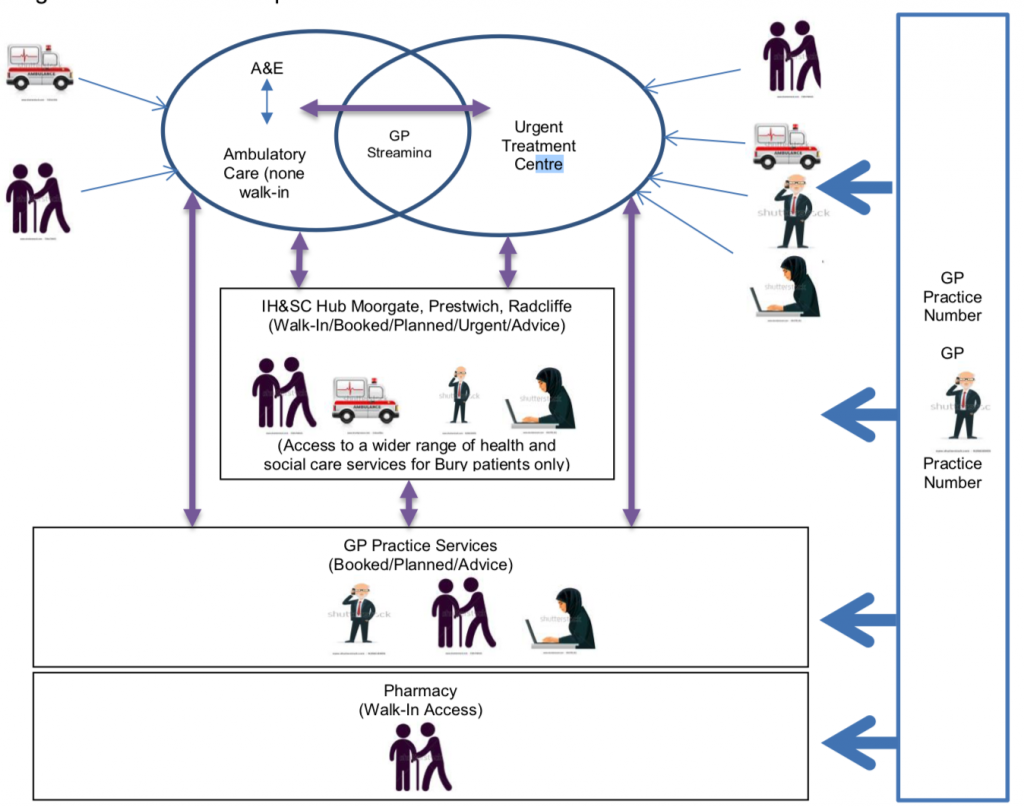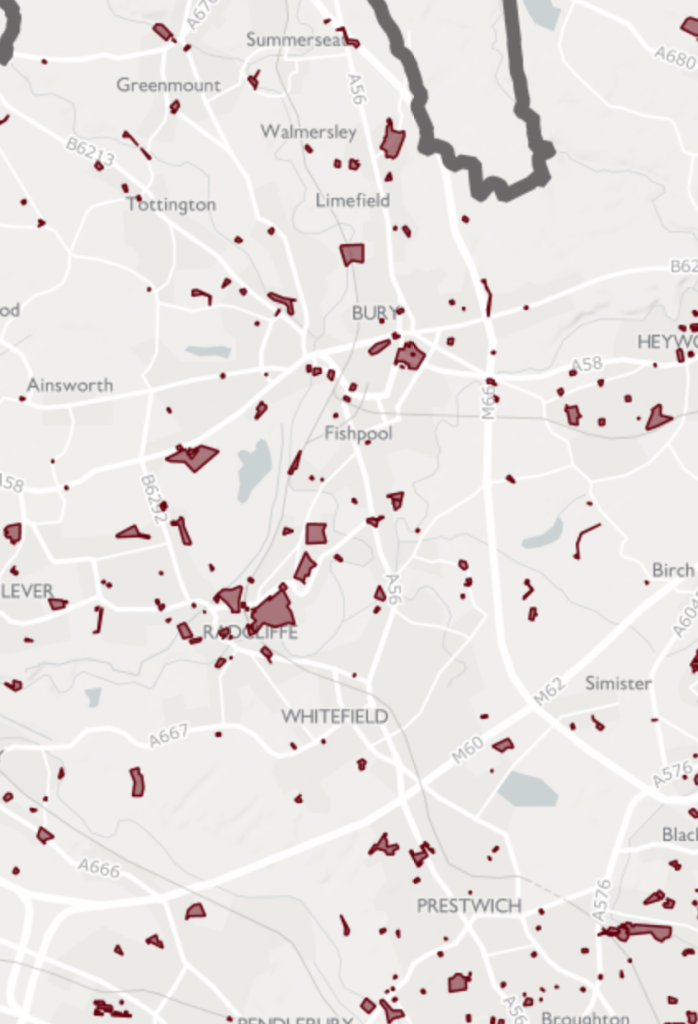The last month saw two opportunities for us to raise residents concerns about what will replace our Walk-In Centres in the revised package of ‘Urgent Care’ across the whole of Bury. The was the regular meeting of Bury Council’s Health Scrutiny Committee, and also a meeting of the Liberal Democrat Council Group with the CCG (Clinical Commissioning Group) Chair.
All areas are experiencing very high demand at hospital Accident and Emergency Department . The current estimate is that 30% of patients that visit A and E do not need to be at such an intensive service. The Government has new guidance for Urgent Care Services for the whole of England.
Bury will have just one Urgent Care Centre, which will be built adjacent to the Accident and Emergency Department at Fairfield General Hospital. (Manchester will be providing a similar Urgent Care Centre at North Manchester General Hospital.) The Urgent Care Centre has to have access to diagnostic services (e.g. X-Ray) which means it realistically does have to be on the hospital site which is where this equipment is. Being next to A and E will help reduce the number of people who currently attend A and E for more routine urgent needs, which can be dealt with at the Urgent Care Centre.
The full urgent care service across Bury will be:
Pharmacy – there will normally be a consulting room were the pharmacist can give advice and propose medication etc for minor ailments and wounds etc.
GP Surgery – All of the current services will be provided.
Integrated Health and Social Care Hub – initially three (Prestwich, Bury and Radcliffe, but eventually one in each township area) – A mixture of Medical professional will be based in the Hub. This will allow patient to have face to face advice from a GP. This will also allow elderly and vulnerable patients with complex issues to be seen in the local community, and will reduce hospital visits.
Urgent Treatment centre – will be located at the hospital in a separate building along side A & E.
A and E – Will treat all emergencies.

We asked a lot of questions about the Integrated Health and Social Care Hub, which will be replacing the Walk-In Centres at Prestwich and Moorgate in Bury, with a new one in Radcliffe. What was clear to us is that the Hub will be very different from the current Walk-In Centre which has general ‘walk-in’ access to Senior level of Nurse. In the future there will be some element of ‘walk-in access’ to the services at the Hub – e.g. GP appointments, this will not be particularly advertised or promoted and access to services by phone will be the preferred route. It was hoped that some of the clinics and other services that currently take place in Outpatients Departments in hospitals could take place at the Hubs, which means less trips to hospital for some people with longer term health needs.
We raised a concern that the some in the media were being too simplistic saying that Walk-In Centres have been ‘saved’ and will continue as they are now in the future, which is clearly not the case. Bringing local services together under one roof at the ‘Hub’ is a good idea, but it is certainly not the Walk-In Centre we currently have. It is important to note that the Hub will only be for people who are register with a GP in the Borough of Bury, so will not be for people who are registered with GPs outside of Bury.
Another big change proposed is access to services by telephone. The first number that people in Bury will be encouraged to phone is their GP practice where staff will be able to take calls to guide the patient to the appropriate medical professional. Outside working hours this number will be redirected to a 24/7 number. We asked questions of the CCG about the capacity of reception staff in GP practices to help people in this way and how staff would be trained to be able deal with a variety of issues. We also asked about confidentiality in GP practices (e.g. where the phone is answered next to the waiting room).
The 111 phone number will be still available if you need advice on such things as urgent dental appointment, the availability of pharmacy out of hours etc
Hope this information is useful please get in touch if you want more information. More details too at these FAQs from the CCG.










